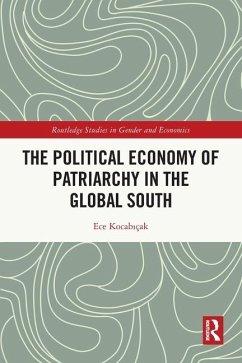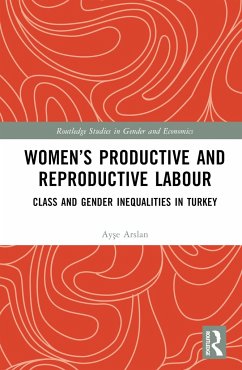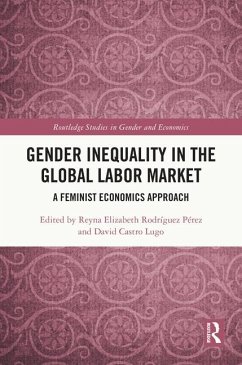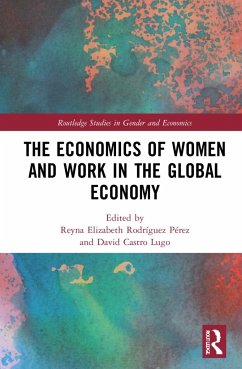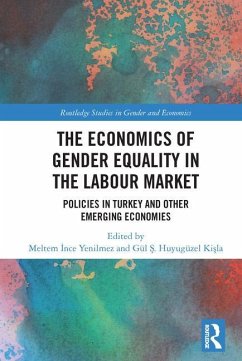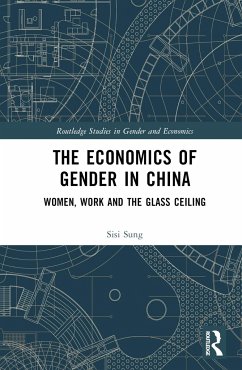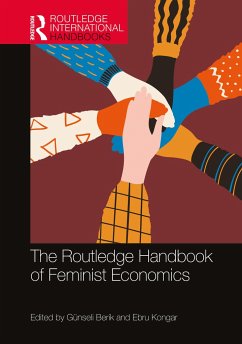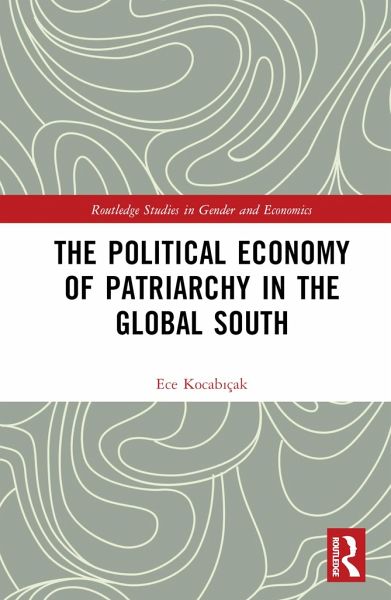
The Political Economy of Patriarchy in the Global South
Versandkostenfrei!
Versandfertig in 6-10 Tagen
154,99 €
inkl. MwSt.

PAYBACK Punkte
77 °P sammeln!
Recent decades have witnessed both a renewed energy in feminist activism and widespread attacks taking back hard-won rights. Despite powerful feminist movements, the Covid-19 pandemic has significantly undermined the progress women have struggled for decades to achieve; how can this be? What explains this paradox of a strong feminist movement coexisting with stubborn patriarchal arrangements? How can we stop the next global catastrophe initiating a similar backlash? This book suggests that the limitations of social theory prevent feminist strategies from initiating transformative changes and a...
Recent decades have witnessed both a renewed energy in feminist activism and widespread attacks taking back hard-won rights. Despite powerful feminist movements, the Covid-19 pandemic has significantly undermined the progress women have struggled for decades to achieve; how can this be? What explains this paradox of a strong feminist movement coexisting with stubborn patriarchal arrangements? How can we stop the next global catastrophe initiating a similar backlash? This book suggests that the limitations of social theory prevent feminist strategies from initiating transformative changes and achieving permanent gains. It investigates the impact of theoretical shortcomings upon feminist strategies by engaging with two clusters of work: ungendered accounts of capitalist development and theories on gendered oppression and inequality. Decentring feminist theorising grounded in histories and developments of the global North, the book provides an original theory of the patriarchal system by analysing changes within its forms and degrees as well as investigating the relationship between the gender, class and race-ethnicity based inequalities. Turkey offers a case that challenges assumptions and calls for rethinking major feminist categories and theories, thereby shedding light on the dynamics of social change in the global South. The timely intervention of this book is, therefore, crucial for feminist strategies going forward.
The book emerges at the intersections between Gender, International Development, Political Economy, and Sociology and its main readership will be found in, but not limited to, these disciplinary fields. The material covered in this book will be of great interest to students and researchers in these areas as well as policy makers and feminist activists. Since publication it has been nominated for the prestigious 2023 British Sociological Association's Philip Adams Memorial Prize.
The Open Access version of this book, available at http://www.taylorfrancis.com, has been made available under a Creative Commons Attribution (CC-BY) 4.0 license.
The book emerges at the intersections between Gender, International Development, Political Economy, and Sociology and its main readership will be found in, but not limited to, these disciplinary fields. The material covered in this book will be of great interest to students and researchers in these areas as well as policy makers and feminist activists. Since publication it has been nominated for the prestigious 2023 British Sociological Association's Philip Adams Memorial Prize.
The Open Access version of this book, available at http://www.taylorfrancis.com, has been made available under a Creative Commons Attribution (CC-BY) 4.0 license.



